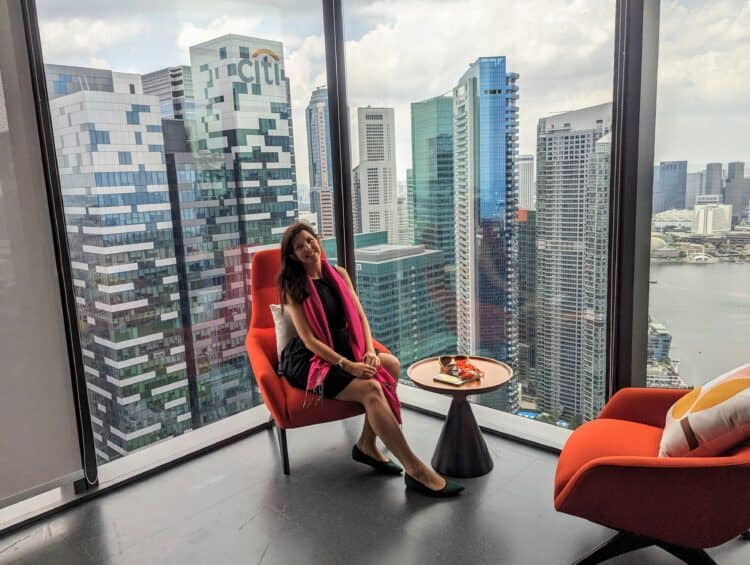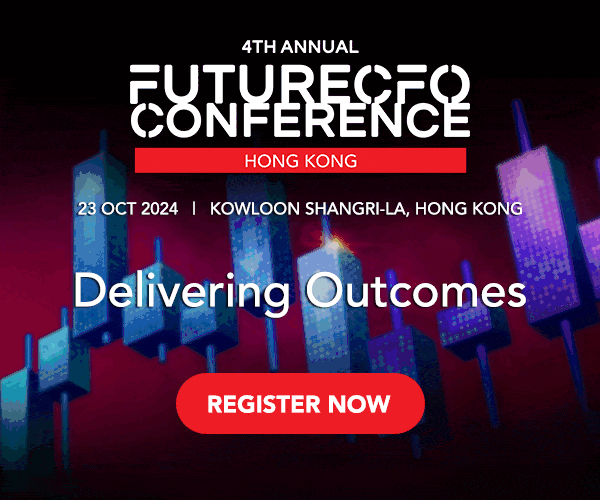Editor’s note: Going down uncharted paths can bring learning opportunities and rewards you never imagined before. In today’s A Day in the Life interview, Victoria Wymark (pictured), Director, Digital Transformation, PwC Southeast Asia Consulting (SEAC) shared with FutureCFO audiences two such experiences in her professional life and in travel, plus her typical work day.
FutureCFO: What does a typical day look like for you?
Victoria Wymark (VW): In management consulting your day is determined by the client project you're helping to deliver.
Right now, I'm very lucky to be helping to drive an important finance transformation for a client that helps to build safety nets for society.
My day starts with a call with my project team about the latest developments on our project and tasks to prioritise for the day ahead.
I take various calls throughout the day with workstream leaders across eight countries to understand progress, risks, issues, and develop mitigation plans.
I communicate key decisions and updates on the project to everyone involved as clearly as possible—either through a meeting, a document written in everyday language, or both.
I lead a daily call at 6pm to bring all the key members of the project together to shortcut any blockers by helping each other.
For this particular project, we've given ourselves a tight timeline to get a lot of things done, so most days I continue to work into the evenings to answer questions and resolve issues to prepare myself and the team for the next day.
I try to take at least two evenings out of the week for myself to either go for a walk, grab dinner with friends, or get a massage.
My travel experience in Ecuador where I lived with a tribe in the Amazon Rainforest taught me that no matter where you are in the world, everyone is connected in their hopes, fears, and humanity.
FutureCFO: What excites you the most when you work with CFOs and finance functions?
VW: What excites me the most is the constant evolution of the role of the CFO and the finance function—from value protection towards value creation.
The CFO's role has become one of the most complex, demanding, and increasingly influential among the C-suite.
In the current economic climate, many CFOs are being asked to lead large scale transformations like migrating legacy apps to the cloud or implementing foundational ERP systems.
These are huge undertakings that need a high level of collaboration across a business.
That means the skills required of a CFO have evolved far beyond the preparation of financial data and stewardship of company assets, towards a transformational diplomat—someone who also understands the impact of change on human behaviour and has the ability to inspire silo-ed teams towards a shared goal.
The ACCA sees the finance function as the powerhouse of technological and social change, and in particular, the accountancy profession playing a significant part in shaping a better world for the future through the adoption of technology to enable sustainable growth.
Technologies like robotics, automation, IoT, and AI will change how work is shared and delivered by leveraging data more effectively.
I'm grateful to be a member of the ACCA, which helps to keep my skills sharp so that I can play a role in building the capabilities needed by finance professionals to add value. Helping CFOs and finance folks adopt those tech and soft skills to navigate the changing landscape is what I love most about my role.
FutureCFO: Can you share an experience which was key to your professional growth?
VW: For the past three and a half years I've had an amazing experience as the chief of staff to our CEO of PwC South East Asia Consulting, Simon Gealy.
We run a consulting practice of around 1,500 consultants across six countries, delivering a broad array of solutions to address clients’ needs and issues across strategy, operations, people, technology, and risk.
When I was first asked to consider the role of chief of staff, I had no idea what that meant.
The CEO put me in touch with two incredible global leaders, Julie and Mia, who are already well-seasoned in the role and their enthusiasm inspired me to accept.
The role, learning journey, and professional growth that comes with being a chief of staff ultimately depends on who you work with and what you make of it.
Working with Simon throughout this time has been like studying for an informal MBA.
He has an incredible ability to get up to speed on complex issues, uncover shortcuts to workable solutions, navigate difficult negotiations with a high level of compassion, and always while doing the right thing for clients, the business, and our people.
One of his greatest skills is being able to see the secret sauce in other people and provide a platform for them to grow and harness those skills.
Simon is a huge advocate for meritocracy and talks to people at any level like a peer. His guidance has been an invaluable part of my own growth journey, and I can only hope to be a small fraction of the leader that he is for the teams I work with.
FutureCFO: Is there anything outside work—such as a travel experience, a book, participation in a sport event or any volunteering experience—that serves as an important inspiration to your work or life? Can you tell us more about it?
VW: When I was 22, I travelled to Ecuador to live with a tribe in the Amazon Rainforest.
I had no phone, no expectations, a high level of trust for strangers, and a copy of "Lonely Planet: South America on a Shoestring".
I navigated a series of planes, hostels, and buses travelling alongside companions, including a man with a penchant for swallowing and regurgitating marbles, and a lady carrying small chicks and machetes.
As instructed, I counted the boulders along the road until asking the driver to stop in the middle of a dirt track to meet my new family in Arutam.
I learned about the battle against mining companies for the rights to their ancestral lands, the versatility of indigenous trees and plants, using a machete to navigate the forest, and even the process for how to shrink a human head (ask me in person!).
The tribe’s first language is Shuar, and we spoke in their second language, Spanish.
I was excited to see forest animals like tapirs, jaguars, and anacondas. But apart from one baby anaconda and many giant spiders, insects, and frogs, the animals kept their distance from our huts.
The experience taught me that no matter where you are in the world, everyone is connected in their hopes, fears, and humanity.
Until today, I'm always curious to hear the life stories of others, especially those that are different to mine.



